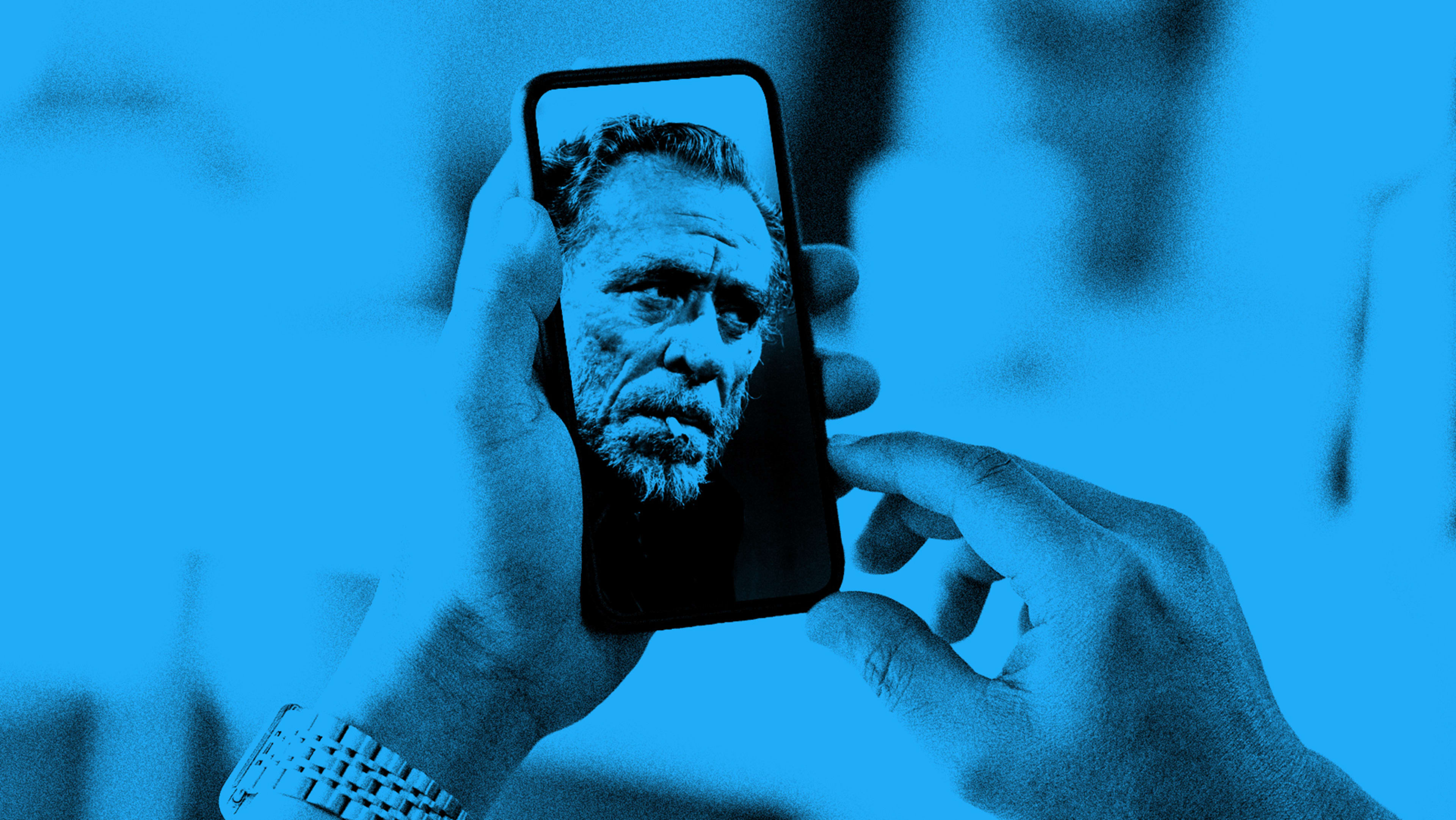Social media users are again debating the merits of Charles Bukowski, the late Los Angeles-based writer known for his poetry describing a coarse, often boorish version of American masculinity replete with drinking, gambling, and not-always-successful womanizing. The discussions came after screenwriter Melissa Turkington posted photos of a Bukowski book with the margins annotated by a critical reader, who added notes like “go to therapy dummy” next to poems in which Bukowski laments his difficulties in relationships.
Bought a used Charles Bukowski book and the best part are the notes in the margins from a woman who clearly was having none of this shit. pic.twitter.com/YfVjvJ1Ua5
— Melissa Turkington (@Leftovers_Movie) July 23, 2021
Inspired by Turkington’s tweet, Twitter users discussed everything from the entertainment value of Bukowski’s poetry to what psych treatment actually entailed during his prime years to his seeming disregard for the women in his life. And while the poet died in 1994—when the internet and social media were not yet anything like what they would become—he oddly predicted some of what today’s online life might look like, decades before his poems would be fodder for Twitter jokes and the occasional inspirational Pinterest post.
In a poem published after his death, he wrote:
“now it’s computers and more computers
and soon everybody will have one,
3-year-olds will have computers
and everybody will know everything
about everybody else
long before they meet them.
nobody will want to meet anybody
else ever again
and everybody will be
a recluse
like I am now.”
While it’s too simplistic to call Bukowski a pre-Reddit Redditor or angsty, incel-adjacent tweeter before there was Twitter, he did become a bit of a tech nerd and channeled that side of himself into his work. The combative author, known for his post-length poems, took to using an early Mac in the last years of his life. It let him boost his writing speed and, in his mind, quality, according to a poem titled “My Computer.” That poem largely defended the device against its detractors, who seemed to feel it was incompatible with Bukowski’s malcontent-with-typewriter image. “[I]t’s like I have sold out to the enemy,” he wrote.
But, like many a modern extremely online person who pines for a simpler era, Bukowski recognized early on some of the absurdities and binary-coded bureaucracies inherent to personal computing. “[W]ith an Apple Macintosh you can’t run Radio Shack programs in its disc drive,” begins one 1980s poem, titled “16-bit Intel 8088 chip.”
The poem goes on to list other incompatibilities between computer models of the day, including the Commodore 64, Tandy 2000, and Kaypro. At the end, though, it turns back to the familiar Bukowskian territory of the eternity of nature and, well, male posturing: “but the wind still blows over / Savannah / and in the Spring / the turkey buzzard struts and / flounces before his / hens.”
💻 16-bit Intel 8088 chip 💻#Bukowski #poetry pic.twitter.com/orwh11rhyl
— susan's ghost requested sky burial 🦀 (@sw_entropybitch) August 16, 2016
Recognize your brand’s excellence by applying to this year’s Brands That Matter Awards before the early-rate deadline, May 3.
